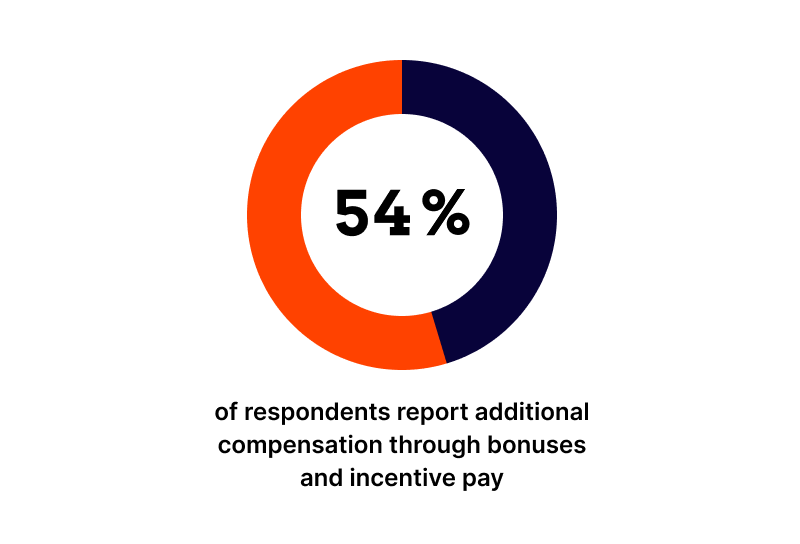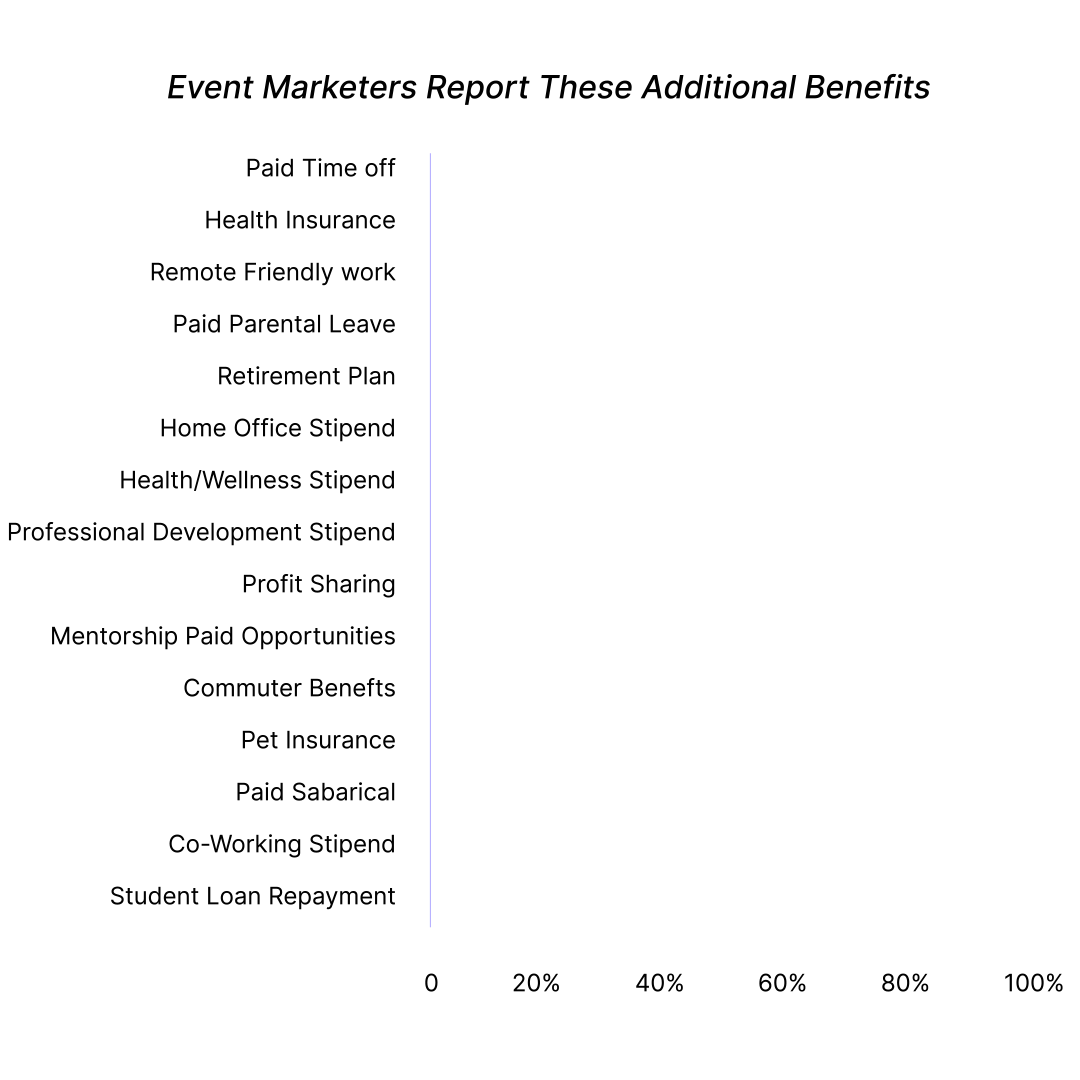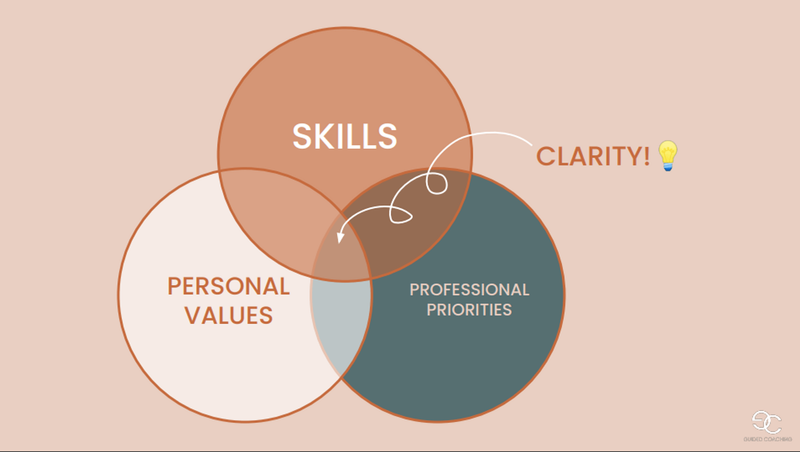Event Marketing Salaries: Findings From the 2023 Compensation Report (Plus, Tips on How to Negotiate!)

Maximize Your Marketing ROI
Join 10,000 other marketers already getting the best tips on running engaging events that boost pipeline and create raving fans.
Hello, event marketers! If you’re in search of salary benchmark information or hoping to learn how to negotiate a better compensation package, you’re in the right place. Welcome!
At Goldcast, we’re committed to supporting and creating more transparency in the event marketing community. When researching for our own internal events roles, we noticed a glaring lack of salary and compensation data—and this troubled us.
Of course, some of this data is already available through sites like Glassdoor and Salary.com. But outside of these walled (and potentially biased) sites, we couldn’t find many reliable sources on how much money event marketers make, as well as other benefits they receive and how their careers tend to play out over time.
So, we decided to create our own report! This is our second year of producing the Event Compensation Report, and we've learned so much already.
About the survey
Our 2023 report includes responses from 208 event marketers across 31 states and from companies of various shapes and sizes.
Most respondents were based in the United States, with an emphasis on California, Massachusetts, and New York. We had participants across all levels of seniority, including associate, manager, director, and vice president job titles.
While we did our best to reach a diverse group, we acknowledge that this is a relatively small sample size. However, we got more respondents this year than last, and we hope to continue growing the survey over time.
And, if you’re reading this and didn’t get a chance to participate, we hope you’ll consider contributing next year!
Okay, now let's talk about our findings from this year's report. Check out our free report walkthrough video below, and keep reading for tips on how to negotiate for the compensation package you deserve!
Want a deeper dive? Watch our full report overview video on-demand
Average event marketing salary in 2023
Let’s address the most pressing statistic in the report: the average event marketing salary.
The average base salary for marketers is holding pretty steady from last year at $125,224.
While this number looks impressive on paper (and it is!), averages alone aren’t entirely useful. Where you’re based, your title, and how long you’ve been in the field all contribute to your compensation.
Lucky for you, we break this down a bit more granularly in the full version of the report. Check it out for a deeper dive into how salary changes with location, tenure, and more.
💰 Dig into the data—check out the full version of our Compensation Report.
The role of the modern event marketer
Next: What do event marketers really do?
The answer varies. Look at five event marketing job descriptions, and we bet you’ll see five totally different roles. An event marketer’s job has evolved rapidly over the past several years, particularly in the B2B context.
What used to be a blanket “event planner” role has since evolved into a revenue-generating function, and event marketing managers are often expected to own pipeline and revenue numbers.
Sarah Reed, Vice President of Global Events at ZenDesk, summed it up nicely in her episode of Event Marketers Live:
The traditional ‘event planner’ role at B2B companies is evolving into ‘event marketing.’ That’s where the industry is going.The big difference is event planners are all about overall event management. But marketers are also responsible for both the event management and performance-based components. It takes a lot of strategic thinking.”

The average bonus clocked in at 11% of base pay, meaning these bonuses can definitely help boost an employee's bottom lines!
How to improve your total compensation
Alright, so you’ve seen the average event marketing salary, and you’ve explored the report breakdown. Yet, you’re still not sure whether you’re getting paid a market salary.
We get it—it’s complicated! And salary isn’t the only thing to consider when evaluating a new position.
This is exactly why we hosted an in-depth Career Workshop session with Karli Williamson of Guided Coaching.
We’ll summarize her framework and advice below, but we highly recommend watching her full session for all of her hot tips.
Understanding total compensation 💸
First up: It’s essential that you understand your total compensation.
Base Salary + Incentive and Bonus Pay + Benefits = Total Compensation
As you can see above, compensation consists of so much more than just your base salary. Incentives, bonus pay (which we just covered!), and benefits are all part of the equation.
Benefits in particular are an extensive category where there can be a lot of room for negotiation. Outside of insurance, which may be less flexible, what are other perks that you enjoy or that you want? This can help you push for a higher total compensation even in situations where salary and health insurance are locked in.
When brainstorming benefits, think about things like:
- Paid maternity or paternity leave
- A remote-friendly role
- Flexible work hours
- Additional PTO days
- Profit-sharing or performance bonuses
- A budget for professional development
Get creative here! There’s a lot outside of just base salary that can—and should—be considered when negotiating. And again, these perks can add some weight to your average total pay.
If you’re looking for a benchmark or starting point, our 2023 report revealed that Event Marketers receive these additional benefits:

Promoting yourself at work 👋
How well do you promote yourself at work? Do you ever share your personal wins? Do you regularly celebrate your successes as an event marketer?
News flash: If you’re not actively promoting yourself, you absolutely should be!
Self-promotion can accelerate your marketing career path by saving time; you don’t have to work as hard to maybe, someday, get noticed. You're pushing your achievements out into the world and onto the radar of people in the industry. It also helps you build a community within your organization and enables you to give back to others in the same boat.
To get started, have a clear understanding of your career decision-makers. This applies to both internal folks (like your leadership or direct managers) and external folks (like clients, partners, or thought leaders).
We know what you’re thinking—external folks? Why do they matter? Well, if you've ever heard the phrase, "Your network is your net worth," the same sentiment applies here! The more that you are known outside your company, the more valuable you are inside your company.
✅ Here are a few simple ways to build credibility:
- Keep your LinkedIn profile and resume up to date
- Get publicity via articles (Check out Help A Reporter Out and Qwoted)
- Pitch yourself to podcasts (Check out MatchMaker.fm)
- Submit yourself as a speaker or presenter
- Ask for recommendations, reviews, and testimonials
And don’t forget about the value of good, old-fashioned networking. It’s not selfish to leverage relationships for your own gain. You have valuable things to offer, too!
Finally, remember that your manager is not a mind reader. Make sure you’re having productive conversations around your accomplishments, your goals, and where you want to be in the next phase of your career—events or otherwise.
Salary negotiation tips 🤝
Finally, it’s time to talk about money—specifically, how to negotiate for more.
Eek!
Just the thought of approaching this topic can feel scary, but it doesn’t have to be. Do your homework and come prepared to have a candid conversation about compensation. And remember what we discussed earlier—everything is negotiable! Salary isn’t the only thing on the table when you’re talking total compensation.
The first and best tip is to negotiate and land a salary and benefits that you’re happy with BEFORE you ever accept a job offer. And, get your total offer with all benefits listed on paper. That way, there’s no room for error or confusion.
Of course, if you’re in a current role and trying to level up your compensation, this first tip isn’t as helpful (but still good to keep in mind if and when you do make a move!).
If you’re looking for advice on starting meaningful conversations in your current role, here are a few tips:
- If possible, de-couple salary reviews and performance reviews. It sounds counterintuitive, but there are several compelling reasons why more companies are separating these two milestones.
- Have a number in mind. Actually, have three—your walk-away number, your target salary, and your “nice to have” range.
- Show the proof. What have you accomplished? Why do you deserve this bump? Take your learnings from self-promotion and put them into action!
When it comes to negotiation strategy, there are different philosophies on whether or not you should say a target number first. Just know that there’s truly no right or wrong way to do this—it really depends on your personal comfort level.
If you do feel comfortable coming out of the gate with a target, start with a range, and anchor the range with your ideal offer at the bottom. So, if your target is $100,000 per year, ask for $100,000 - $120,000. Chances are, if you’re a good fit and the company is ready to make an offer, they’ll meet you in the middle, which still puts you above your ideal offer!
If you aren’t comfortable naming a target salary first, for any reason—don’t. You do not have to provide a target salary or even a range if you don’t want to.
Instead, turn the tables and ask the company what their budget is for the role. Whether negotiating a new role or discussing a raise, don’t feel pressured to spill your target first. Keep the conversation open and focus on gaining information and highlighting what you bring to the table.
Finding career clarity
When it comes to getting clear on what you want, three's the magic number!
There are three pillars of career clarity:
- Skills: What do you like doing the most? What are you good at?
- Professional priorities: What do you need from your job to feel satisfied?
- Personal values: Who are you and what matters to you?
These will guide you on your quest. To start, look at the skills you enjoy most. Do they have anything in common? For example, if your favorite work tasks are running meetings and organizing events, perhaps the common thread is project management. That's helpful to know because you can seek out roles that require that skill.
Next, outline your priorities and values. When you're evaluating job opportunities, having these in mind will help you assess whether a company or position is truly a fit for you. For example, if you've identified that company culture is more important to you than compensation, maybe it makes sense to turn down a higher-paying position at a company you don't vibe with and instead accept a lower-paying role at an organization that feels more aligned with your values.

You probably won't solve all of your problems immediately, but having any information at all is a good place to start. From there, you can try new things, gain more info along the way, and continue to iterate until you get to a better place.
—
If you’ve made it this far and would love to learn more, we highly recommend watching our full Career Workshop session with Karli. It’s an hour well spent to get expert advice on landing the compensation you deserve as an event marketing manager and beyond. Check it out, and let us know what you think!

Transform Your Video Marketing with AI
Stay In Touch
Platform
Resources
Company
© 2026 Copyright Goldcast, Inc. All rights reserved.
YOUR PRIVACY CHOICES




 Upcoming Events
Upcoming Events Event Series
Event Series On-Demand Events
On-Demand Events

